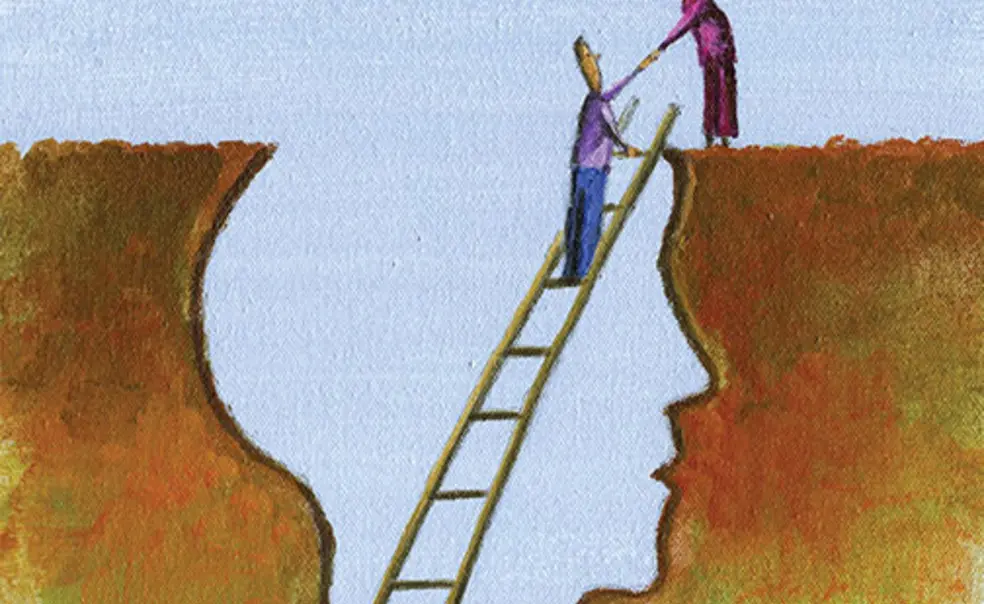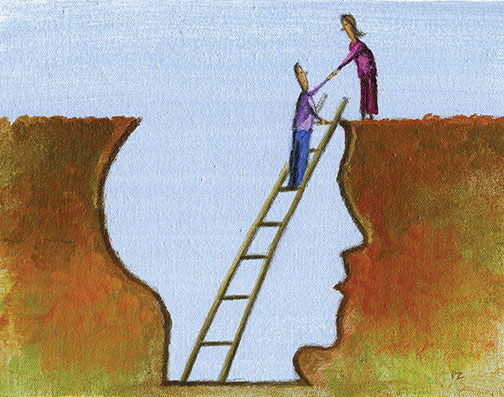Mental-Health Debate
At issue: University’s policies, procedures on withdrawal in cases of mental illness
A recent lawsuit and coverage in The Daily Princetonian have prompted a campus debate about how the University treats students dealing with depression and other mental illnesses. Some students and mental-health advocates argue that these policies threaten to undermine student confidence in the University’s counseling offerings, discouraging students from seeking help.
In March, a student sued the University, seven administrators, and the Board of Trustees in federal court. The student, who attempted to commit suicide, withdrew for a year and has since returned to campus. The lawsuit alleged that University officials disclosed confidential counseling records to campus administrators, who he said left him no choice but to withdraw. He also alleged that the officials discriminated against him because of his mental illness.
The student’s lawsuit follows a similar complaint he made to the U.S. Department of Education’s Office of Civil Rights. The office dismissed all of the student’s claims and closed the case in April, University spokesman Martin Mbugua said.
In an anonymous op-ed in the Prince, another student recounted the decision to voluntarily take a year off without telling the University it was for mental-health treatment. The student wrote that when the University found out, it required the medical records from treatment as a condition for the student to return to campus.
Zhan Okuda-Lim ’15, chair of the Princeton Mental Health Initiative Board, said the controversy could affect the willingness of students to seek help from Counseling and Psychological Services. The University reported that 17 percent of undergraduates and 21 percent of graduate students use CPS offerings each year.
“Students that I have spoken to ... have said that ‘I’m worried if I went to CPS and were really open and honest, the next thing is I get an email’” about having to leave campus, Okuda-Lim said.
Representatives of the University’s health and campus-life offices vigorously defended their approach to mental health. Without exception, they argued, the University acts in the best interests of the student and the campus, regardless of liability or public-relations considerations.
Administrators met with students, wrote letters to the Prince, and released an FAQ last month to clarify their policies.
About 35 students withdrew or took a leave of absence last year due to a “self-described mental-health issue,” Mbugua said in a statement. In only three to five cases, he said, the student did not initiate the withdrawal conversation.
The University contested the assertion that it automatically forces students who have attempted or considered suicide to withdraw. “Most students who have been hospitalized because of an acute suicidal crisis can return to campus and resume their studies in the same semester, and many do,” Mbugua said.
In the lawsuit, the student alleged that officials acted rigidly, without a “meaningful interactive process” between the student and administrators. Mbugua said that the University’s general practice is for college deans to work closely with a student to develop an individualized plan for academic accommodations.
But, he said, “if the student continues to be at extremely high risk (perhaps because of a refusal to engage in appropriate treatment) for a longer period, then it becomes less likely that the student would be able to manage his or her academic obligations” and therefore should leave campus. Requiring a withdrawal has occurred fewer than five times in the past decade, according to the University’s FAQ, but a student “may not unilaterally decide to remain enrolled when the evaluation indicates that his or her life may be at stake.”
As part of the consultation process, the University requests medical information to determine whether the student can safely stay on — or return to — campus, said Calvin Chin, the CPS director.
As for routine visits to CPS, all information is kept confidential unless there is “imminent danger to self or others” or if the student chooses to authorize the release, John Kolligian, executive director of University Health Services, wrote in a statement.
Mental health has become a controversial issue at other colleges. Two students at both the University of Pennsylvania and George Washington University (GWU) committed suicide in 2014. At Harvard University, a student and a recent graduate committed suicide on campus this year. A dental student at Columbia University was found dead in the Hudson River last month from suicide.
Against this background, the rights of students facing mental illness, and the responsibilities of universities, have gained national attention. GWU and the City University of New York both settled lawsuits brought by students who had been removed from campus.
An underlying question in those cases and others is whether a school should force or encourage suicidal or depressed students to leave campus. At Princeton, if students fall too far behind on their coursework, “the student, in consultation with the dean, may conclude that it makes better sense to withdraw,” Mbugua said, until “the student is able to focus on academics with less impact from a health condition.”
Requiring students to leave can be counterproductive, said Darcy Gruttadaro, director of the Child and Adolescent Action Center at the National Alliance on Mental Illness. “Forcing them off campus is punitive and is not fair to the student, because you’re making a fundamental change to their life circumstances,” she said, which can hurt their recovery.
University officials pointed out that they must also act in the best interest of the campus, not only of individual students. Cynthia Cherrey, vice president for campus life, addressed this issue in a letter to the Prince, saying the University must “protect as fully as possible the health and well-being of all members of the campus community.”
In recent years, Mbugua said, the University has boosted counseling resources, reduced wait times for non-urgent care, and expanded group therapy and workshops.
Okuda-Lim said he appreciates the administration’s willingness to engage with students, and he said he hopes the University will take feedback seriously. “Moving forward, actions are going to speak bounds and bounds more than words,” he said.













No responses yet